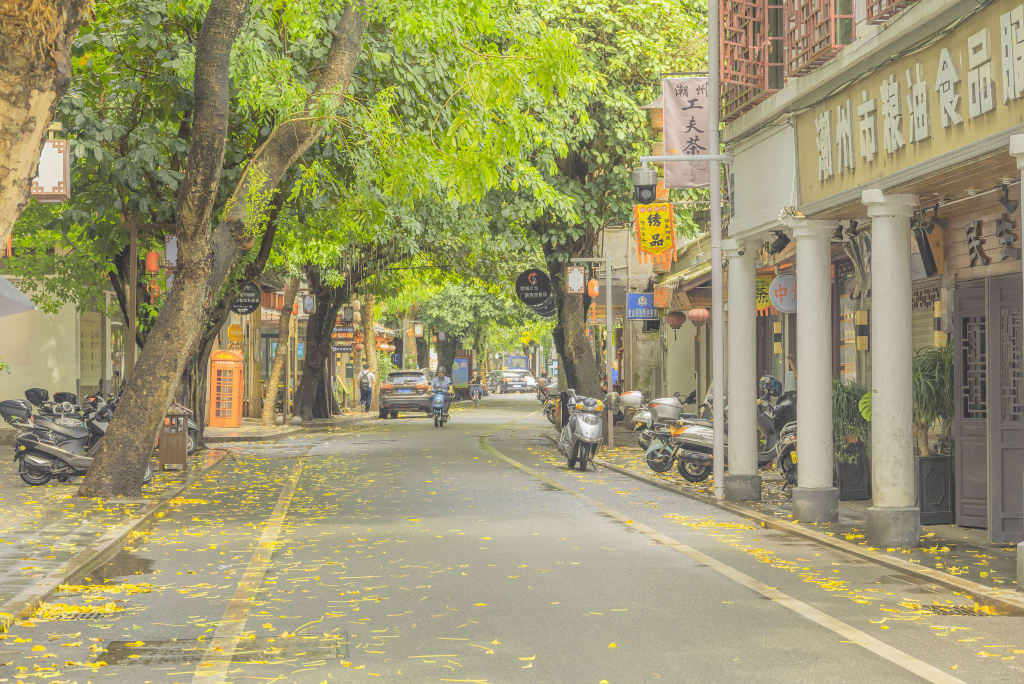
Back in the 1980s and 1990s, when I first started running around the mainland with my backpack, one of my important tasks was to visit the so-called "century-old restaurants" around the world to try their famous specialties. The reason why I have to add quotation marks to the word "century-old restaurants" and drop the word "so-called" as a somewhat reserved and somewhat less polite adjective is that after running this round, I found that most of the century-old restaurants have long failed to live up to their names. Not only are the products far from the old legends, but even they are still the original store is also very suspicious.
Many people put the blame for this problem on the nationalization policy after the establishment of the Chinese Communist Party, once nationalized, what can those old stores have to do with their original owners? Yes, the change of ownership will indeed have a great impact, but in my opinion, I am afraid the most fatal blow is still the political wave under which a group of red newcomers completely took away the rights of the teachers, and flat out interrupted the entire lifeline of culinary heritage. You see Lu Wenfu's "Gourmet", he wrote this process into the woods, is aware of its harm after the problem can not be cured in a day.
The question is without the influence of these external forces, we Chinese can not properly cultivate a fertile ground for the cultivation of old stores? Frankly speaking, I doubt it. It is often said that "wealth does not last three generations", and I think this is a very valid observation. The first generation works hard to build the foundation of the business; the second generation expands on the family foundation on the one hand, but on the other hand, they often sow the far-reaching causes of future disintegration; by the third generation, the tree that has flourished has mostly come to the end of the flowers and fruits. The fate of all family businesses run by Chinese people does not deviate from this trajectory. And three generations together, is not exactly a hundred years of life? No wonder in our China, a hundred years will be able to call the old, and the business has been over a hundred years old store straight as a rare. For example, the "Shanghai Old Hotel", founded in the former Qing Dynasty during the Tongzhi period, was originally called "Rongshun Hall", as if it had not gone to the Republic of China has proudly changed its name to "Old Hotel", which is all Chinese restaurants life as a mayfly, the reason for the rise and fall between the night and the day. Then look at Hong Kong's "Fulinmen" and "Yung Kee", only to the second generation has been rumored to be sibling rivalry and family matters and the news, to say a word to offend people, they can not hold up to a hundred years, it is really hard to say very much.
In contrast, Europe on the contrary, there are a few open two or three hundred years of the restaurant, in addition to tourists especially like the Madrid "Paulding", from Rome to Berlin, there are also some of the history of the old. Why do they live so long? And is it still the descendants of the original family in charge? I'm not sure. But I know the secret of the unusually large number of 100-year-old stores in Japan.
In Japan, especially in Kyoto, a hundred years is nothing, it is just the minimum threshold for entry, and there are simply a lot of stores that have been open for two or three hundred years. What's even more strange is that those old stores are actually in the hands of the original family, did not change hands, and did not change its name. I have heard Professor Guan Wenna, an expert in Japanese history who works at the University of Hong Kong, explain that this is because the Japanese are more concerned about "karma" than "blood", and focus on the continuity of the craft more than the beneficence between blood relatives. As a simple example, there may be a master fan maker who is a first-class craftsman and a loyal customer, but he is quite old, and it is almost time to decide his successor. His oldest apprentice, however, is a mind all spent on the head of the fan, almost to the point of no interest, no wonder there is a vague momentum of the blue.
Well, you guess that fan master will pass the store to which one of the hands? Is it a son or a disciple? The answer may be a shock to many Chinese who love their children, because the Japanese shopkeeper will often give the business to the person who is most capable and interested in taking over the baton, not necessarily his own born child. This practice is very rational from a certain point of view, because the biological children really have no necessary reason to love the business of their fathers, they can have other plans; on the contrary, the disciples and staff want to continue the family's will or will be greater and more loyal. This is the "karma", not the blood connection, but the mutual recognition and knowledge of each other in a profession.
Alan MacFarlane, a Cambridge anthropologist, compared the Japanese system of succession with the Cambridge Fellowship with which he was familiar: "I have the right to choose my successor through the Fellowship contest, but I have no right to sell a single blade of grass in the College, in our Chapel, or in our Library. Therefore, my so-called free rights are strictly limited." In other words, the heir to a Japanese family business may not sell his ancestral property or split it up and pack it away; he must leave it intact and "preferably pass it on in an improved state, if possible, in order to keep it in the generations." In order to achieve this goal, the old stores in Japan, which have become established, choose their successors in the same way as Oxbridge chooses its fellows: "The person who receives this transmission does not necessarily have to be a family member. If the heirs decide that the firm or farm is best run by a distant relative, or even a mere stranger, they can adopt that person, and all biological children are then deprived of the right of succession."
In other words, those old Japanese restaurants that have been opened for hundreds of years are in the hands of the same "family", but their "family" is not at all the same as our Chinese family linked by blood. There may be an adopted son who was originally an apprentice and later changed his surname, or there may be an outsider who was recruited to join the family, all depending on professional fate. Therefore, we no longer need to admire the "spirit" of Japan that can adhere to the tradition of intergenerational succession, because the focus is not on the "spirit" at all, but rather on the differences in the overall approach to industrial succession. According to our bloodline first, the family can only be left to the son of the method, the old store at most only a hundred years, is simply inevitable law.






Comments
There are no comments for this story
Be the first to respond and start the conversation.